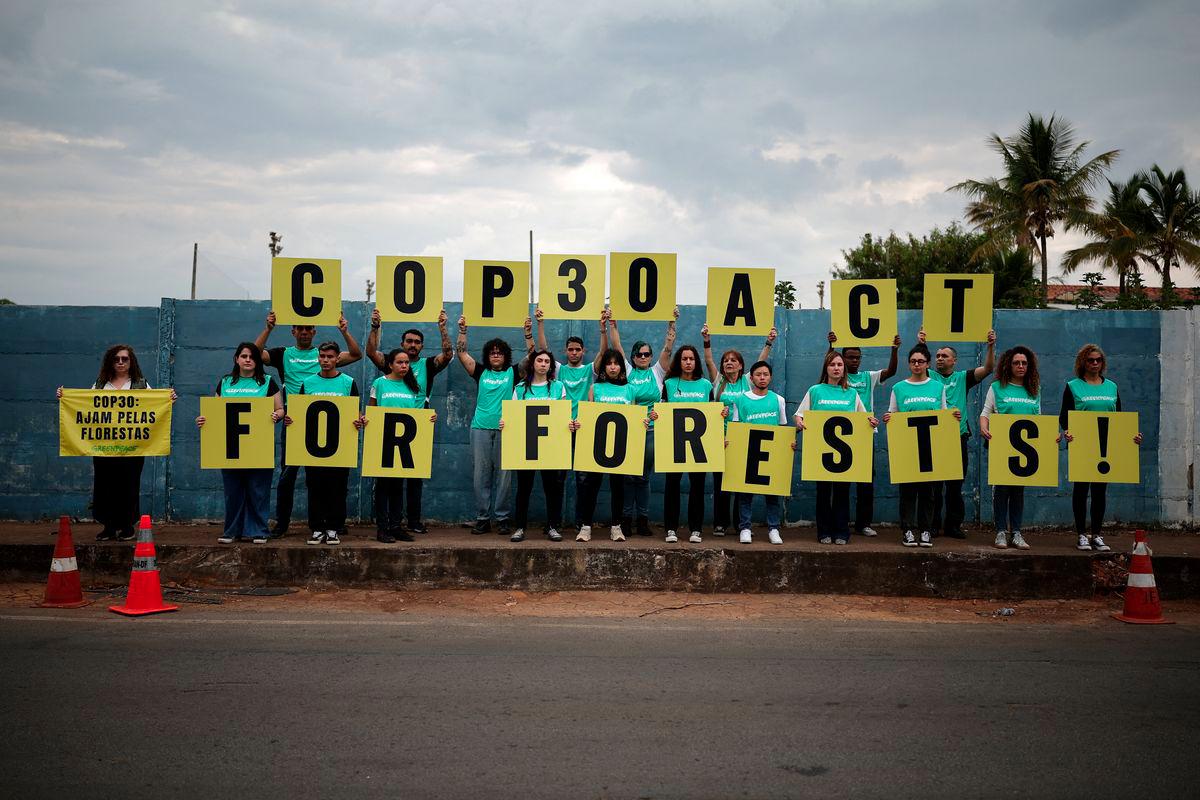WASHINGTON: U.S. mayors are preparing to take a leading role at the upcoming COP30 climate talks in Brazil as federal climate participation remains uncertain.
Kirk Watson and other American city leaders plan to use the November summit to reaffirm their growing climate commitments and seek international support.
Austin Mayor Kirk Watson emphasised that subnational action has become the primary driver of climate progress during federal inaction.
“We’re proving that, at a time of stress on the government taking action to address climate, cities can grow, we can prosper, but cut emissions at the same time,“ Watson stated.
President Donald Trump recently called climate change a “con job” at the U.N. General Assembly and has withdrawn from the Paris climate agreement twice.
The White House has cancelled clean energy investments worth tens of billions of dollars, creating uncertainty about U.S. official participation in COP30.
White House spokeswoman Taylor Rogers criticised what she called “brutal green energy policies” that she claimed bankrupt nations and disadvantage compliant countries.
Federal cuts have threatened Austin’s plans for major emissions reductions by 2030 despite resident demands for climate action amid worsening extreme weather.
Watson aims to use COP30 events to discuss funding solutions, extreme weather protection, and strategies against climate disinformation with other local leaders.
COP30 host Brazil has emphasised local government participation, with a separate Rio de Janeiro event expected to draw hundreds of mayors before the main summit.
Julie Cerqueira of the Natural Resources Defense Council noted this marks the first COP where subnational leaders form such a significant component of the work.
Continued action by U.S. cities, states and businesses could help reduce national greenhouse gas emissions by up to 62% by 2035 according to University of Maryland research.
American cities exercise particular authority over building codes, transportation, waste management and renewable energy adoption through their regulatory powers.
C40’s North America director Kate Johnson said cities seek to build international partnerships and discuss creative financing at COP30.
Johnson highlighted successful local financing examples like Seattle’s voter-approved $1.6 billion transportation funding for bike lanes, EV charging and low-emissions delivery services.
C40 estimates urban climate action will require approximately $4.5 trillion annually globally until 2030.
Swarthmore College professor Ayse Kaya noted growing recognition of local officials’ implementation role despite the nation-led COP process.
“Cities’ experience during Trump’s first term strengthened climate partnerships between state and local leaders and international governments,“ said Cerqueira.
Thousands of cities worldwide have emissions reduction pledges, with many adopting more ambitious targets than their national governments.
Phoenix Mayor Kate Gallego reported significant impacts from federal energy policy changes, including companies in the EV space going out of business.
Gallego chairs Climate Mayors, a network of 349 local leaders that formed when the U.S. first withdrew from the Paris agreement in 2017.
European and other international partners have continued reaching out to American cities wanting to maintain climate cooperation despite federal policy shifts. – Reuters
Hence then, the article about us mayors to lead climate action at cop30 amid federal absence was published today ( ) and is available on Daily Sun ( Middle East ) The editorial team at PressBee has edited and verified it, and it may have been modified, fully republished, or quoted. You can read and follow the updates of this news or article from its original source.
Read More Details
Finally We wish PressBee provided you with enough information of ( US mayors to lead climate action at COP30 amid federal absence )
Also on site :
- This Popular Soda Shop Just Launched a Tear-Jerking Collab That Fans Say They ‘Gotta Try’
- GOP Sen. Tim Sheehy joins police to physically remove protester from hearing
- 4 Birth Months Have the Luckiest March 2026

